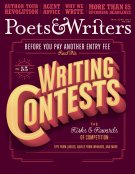1. WordNet (wordnet.princeton.edu), out of Princeton University’s Cognitive Science Laboratory, provides a more sophisticated means of exploring language than a traditional dictionary and thesaurus. The app’s database groups the 1.4 million words it houses according to conceptual and etymological relationships. Each entry, which begins with a word’s precise definition, offers pathways not only to synonyms and antonyms, but also to hypernyms (umbrella terms), hyponyms (specific words encompassed by a general term), and meronyms (names of parts of a whole). The app can be downloaded for free from iTunes or Google Play.
2. Since 2008 publishing industry insiders Michael Kindness and Ann Kingman, who both work at Random House, have been presenting “illuminating conversations about books and reading” on their weekly podcast, Books on the Nightstand (booksonthenightstand.com). A new episode focused on books they love (which are not simply titles from their house of employment) is released each Wednesday and available on iTunes and the podcast’s website. The site also hosts a full archive of the more than 175 genre-spanning episodes recorded so far, resources for book clubs looking to further the conversation, and prompts for a yearlong reading challenge.
3. The online video poetry journal Jupiter 88 (jupiter88poetry.blogspot.com), a project started in 2011 by Philadelphia poet CAConrad, is a feast of inventive verse as well as a visible web of literary alliances. Conrad, whose book of poems and poetry exercises, A Beautiful Marsupial Afternoon, was published by Wave Books in April, has filmed each of the more than one hundred videos featured in Jupiter 88 in the company of the poets he invites to read. Several installments of the distinctly DIY journal are posted each month.






